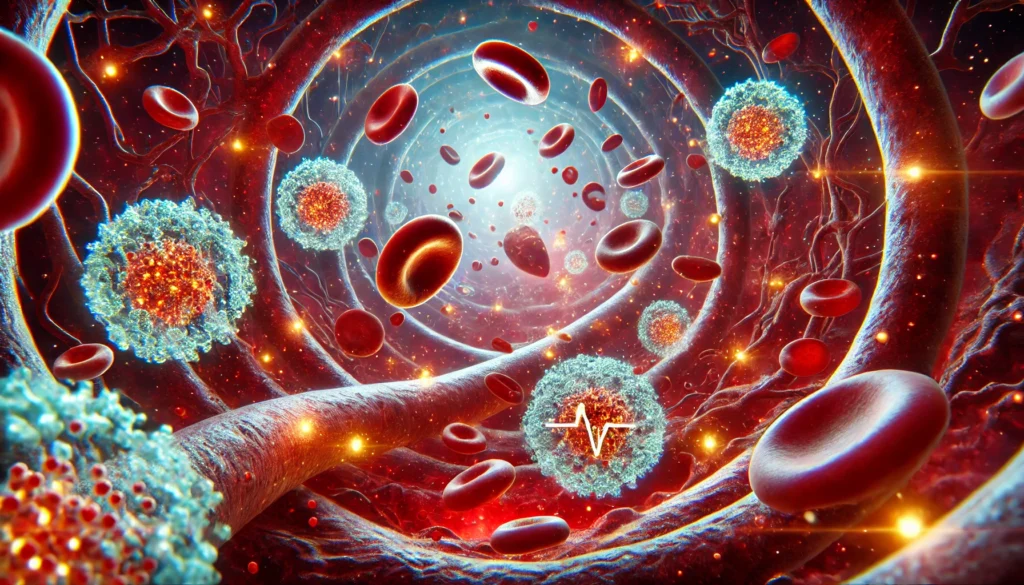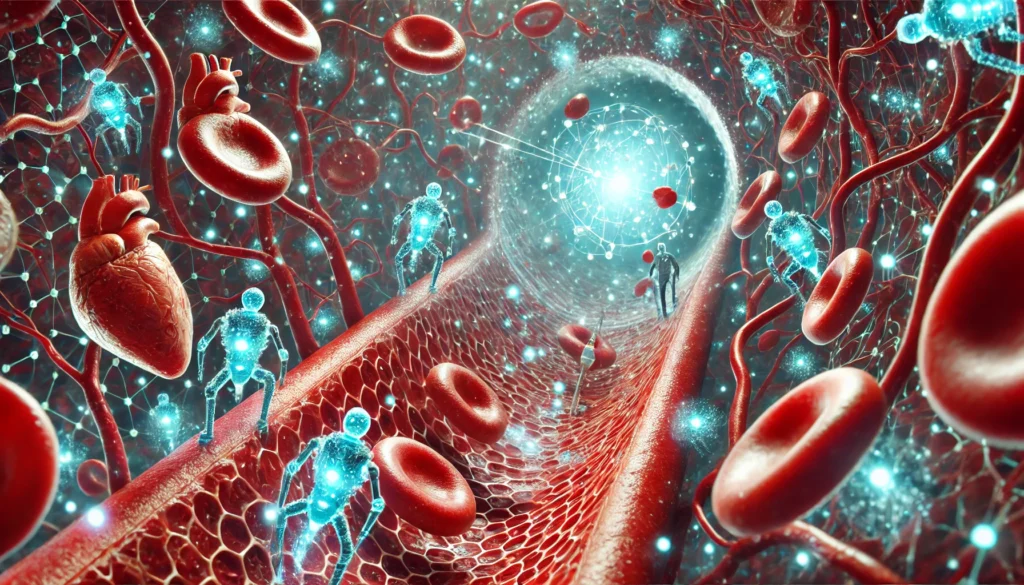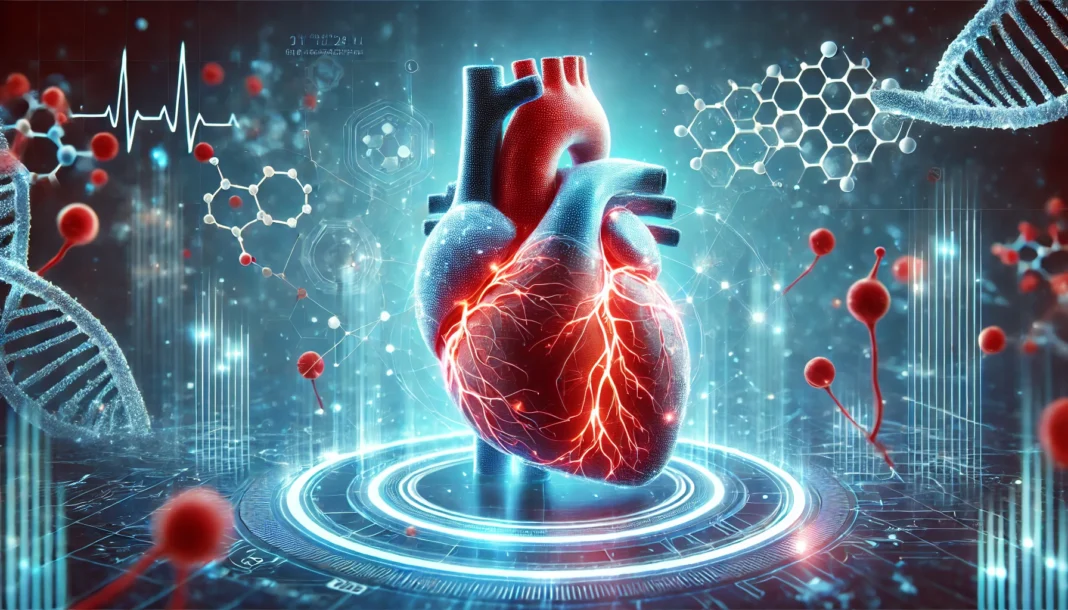Introduction
Cardiovascular disease remains the leading cause of death worldwide, necessitating ongoing research and development of innovative treatments to improve patient outcomes. In recent years, the pharmaceutical industry has introduced promising new cardiovascular drugs designed to target the underlying mechanisms of heart disease with greater precision and efficacy. From novel anticoagulants to groundbreaking cholesterol-lowering therapies, the latest advances in cardiac drug research have the potential to revolutionize cardiovascular care. This article explores these new treatments for cardiovascular disease, highlighting their mechanisms, clinical efficacy, and future implications in the field of cardiology.
You may also like: 5 Modern Treatments for Heart Disease: Advancements in Cardiac Care
The Evolution of Cardiovascular Drug Therapy
The treatment of cardiovascular disease has undergone remarkable transformations over the decades. Early interventions relied on basic diuretics and beta-blockers to manage hypertension and heart failure. However, the growing understanding of cardiac pathophysiology has paved the way for more targeted pharmacological interventions. With the advent of angiotensin-converting enzyme (ACE) inhibitors, statins, and direct oral anticoagulants, the landscape of cardiovascular treatment has shifted towards precision medicine, optimizing therapy based on genetic and molecular markers.

The Role of New Cardiovascular Drugs in Treating Hypertension
Hypertension, a major risk factor for cardiovascular disease, has long been managed with traditional drug classes such as diuretics, ACE inhibitors, angiotensin receptor blockers (ARBs), beta-blockers, and calcium channel blockers. However, recent innovations have introduced a new generation of antihypertensive medications that offer enhanced efficacy and reduced side effects.
One of the most promising new cardiac drugs for hypertension is finerenone, a nonsteroidal mineralocorticoid receptor antagonist. Unlike traditional mineralocorticoid receptor antagonists like spironolactone, finerenone selectively blocks receptors without causing significant hyperkalemia. This feature makes it particularly beneficial for patients with chronic kidney disease and hypertension.
Another major advancement is the introduction of angiotensin receptor-neprilysin inhibitors (ARNIs), such as sacubitril/valsartan, which have demonstrated superior efficacy in reducing blood pressure and preventing heart failure progression. These new treatments for cardiovascular disease provide a dual mechanism that enhances vasodilation while mitigating the harmful effects of angiotensin II.
Innovative Lipid-Lowering Therapies
Hyperlipidemia remains a critical contributor to atherosclerosis and cardiovascular disease. While statins have been the cornerstone of lipid management, new cardiovascular drugs have emerged to address residual cardiovascular risk in patients who do not achieve optimal lipid levels with statins alone.
One of the most significant breakthroughs in lipid-lowering therapy is the development of PCSK9 inhibitors, such as alirocumab and evolocumab. These monoclonal antibodies target the PCSK9 protein, which plays a role in degrading low-density lipoprotein (LDL) receptors in the liver. By inhibiting PCSK9, these drugs enhance LDL clearance, leading to a substantial reduction in LDL cholesterol levels. Clinical trials have demonstrated that PCSK9 inhibitors can lower LDL cholesterol by up to 60% and significantly reduce cardiovascular events.
Bempedoic acid is another novel lipid-lowering agent that works by inhibiting ATP citrate lyase, an enzyme involved in cholesterol biosynthesis. Unlike statins, which act within the liver, bempedoic acid is activated in the liver but not in muscle tissue, reducing the risk of statin-associated muscle pain. This new cardiac drug is particularly beneficial for patients who are intolerant to statins.

Advances in Anticoagulation and Antiplatelet Therapy
Anticoagulants and antiplatelet agents play a crucial role in preventing thromboembolic events, including strokes and myocardial infarctions. Traditional anticoagulants such as warfarin have been widely used, but their need for frequent monitoring and dietary restrictions has led to the development of more convenient alternatives.
Direct oral anticoagulants (DOACs), including apixaban, rivaroxaban, edoxaban, and dabigatran, have revolutionized anticoagulation therapy by offering predictable pharmacokinetics, fewer dietary interactions, and a lower risk of major bleeding compared to warfarin. These new treatments for cardiovascular disease have significantly improved patient adherence and clinical outcomes in atrial fibrillation and venous thromboembolism management.
Similarly, new antiplatelet agents such as ticagrelor and cangrelor have demonstrated superior efficacy in reducing thrombotic events in patients with acute coronary syndromes. Ticagrelor, in particular, offers a more rapid onset of action and greater platelet inhibition than clopidogrel, making it a preferred choice in high-risk cardiovascular patients.
Emerging Therapies for Heart Failure
Heart failure remains a challenging condition with high morbidity and mortality rates. Despite the availability of standard therapies such as beta-blockers, ACE inhibitors, and diuretics, many patients continue to experience disease progression. Recently, sodium-glucose co-transporter 2 (SGLT2) inhibitors, originally developed for diabetes management, have demonstrated remarkable benefits in heart failure treatment.
Drugs like empagliflozin and dapagliflozin have been shown to reduce heart failure hospitalizations and cardiovascular mortality by promoting natriuresis and reducing cardiac workload. These new cardiac drugs have shifted the paradigm of heart failure treatment, offering additional therapeutic options beyond conventional heart failure medications.
Future Directions in Cardiovascular Pharmacotherapy
The field of cardiovascular pharmacotherapy continues to evolve with the advent of gene therapy, RNA-based treatments, and personalized medicine. Gene-editing techniques such as CRISPR-Cas9 hold promise for addressing genetic mutations associated with inherited cardiovascular disorders. Additionally, RNA-targeted therapies, including small interfering RNA (siRNA) drugs like inclisiran, are being explored for their ability to silence genes involved in cholesterol metabolism.
Personalized medicine approaches, leveraging biomarkers and genetic profiling, are expected to refine treatment strategies, ensuring that patients receive the most effective therapy based on their individual risk factors and genetic predisposition. This precision medicine approach is likely to define the future landscape of cardiovascular treatment, moving away from a one-size-fits-all model towards tailored interventions.

Frequently Asked Questions (FAQ) on New Treatments for Cardiovascular Disease
1. What are some of the most promising new cardiovascular drugs currently being developed?
The latest advancements in cardiovascular pharmacotherapy have introduced novel treatment options targeting specific disease pathways. One of the most promising new cardiovascular drugs is inclisiran, an siRNA-based therapy that inhibits PCSK9, leading to prolonged LDL cholesterol reduction with fewer injections than traditional statins. Additionally, vericiguat, a soluble guanylate cyclase (sGC) stimulator, has emerged as a breakthrough for heart failure management, improving outcomes in patients with reduced ejection fraction. Another exciting development is omecamtiv mecarbil, a selective cardiac myosin activator that enhances myocardial contractility without increasing oxygen consumption, making it a potential game-changer in heart failure treatment. These new treatments for cardiovascular disease reflect the industry’s shift toward precision medicine, offering patients more targeted and effective therapeutic options.
2. How do new cardiac drugs compare to traditional treatments for hypertension?
Traditional antihypertensive medications, including ACE inhibitors, beta-blockers, and diuretics, have been the mainstay for decades, but new cardiac drugs are addressing limitations associated with these therapies. One major advancement is the introduction of angiotensin receptor-neprilysin inhibitors (ARNIs), which offer superior blood pressure control and heart failure prevention compared to standard ACE inhibitors. Additionally, aldosterone receptor antagonists like finerenone have demonstrated improved kidney and cardiovascular outcomes in patients with hypertension and chronic kidney disease. The focus on individualized treatment regimens has also led to the development of new therapies that combine multiple mechanisms of action, providing better efficacy with fewer side effects. As new treatments for cardiovascular disease evolve, physicians can tailor hypertension management strategies more effectively than ever before.
3. What role do PCSK9 inhibitors play in cholesterol management, and how do they differ from statins?
PCSK9 inhibitors, such as evolocumab and alirocumab, represent a revolutionary approach to cholesterol management by blocking the PCSK9 protein, thereby enhancing the liver’s ability to remove LDL cholesterol from circulation. Unlike statins, which inhibit cholesterol production in the liver, PCSK9 inhibitors work by preventing LDL receptor degradation, leading to more sustained cholesterol reduction. Clinical studies have shown that these new cardiovascular drugs can lower LDL cholesterol by an additional 50-60% when added to statin therapy, significantly reducing cardiovascular event risks. Furthermore, their less frequent dosing schedule—ranging from biweekly to twice yearly—improves patient adherence compared to daily statin use. These innovations highlight how new treatments for cardiovascular disease are refining lipid management strategies to offer greater convenience and effectiveness.
4. Are there any new anticoagulants that provide advantages over traditional blood thinners like warfarin?
Yes, the introduction of direct oral anticoagulants (DOACs) has revolutionized anticoagulation therapy, offering key advantages over warfarin, which requires frequent monitoring and dietary restrictions. New cardiovascular drugs such as apixaban, rivaroxaban, and dabigatran provide predictable anticoagulant effects with fewer interactions and a lower risk of major bleeding. Additionally, andexanet alfa has been developed as a specific reversal agent for factor Xa inhibitors, improving the safety profile of these new anticoagulants. Unlike warfarin, which can be difficult to manage due to variable patient responses, DOACs offer a more standardized approach to preventing stroke and venous thromboembolism. These advances in new treatments for cardiovascular disease ensure that patients receive effective anticoagulation with fewer complications.
5. How do sodium-glucose co-transporter 2 (SGLT2) inhibitors benefit patients with heart failure?
Initially developed for diabetes treatment, SGLT2 inhibitors such as empagliflozin and dapagliflozin have demonstrated remarkable cardiovascular benefits in heart failure patients. These new cardiac drugs help reduce heart failure hospitalizations and cardiovascular mortality by promoting natriuresis, reducing cardiac preload and afterload, and improving overall myocardial efficiency. Unlike traditional diuretics, which primarily focus on fluid removal, SGLT2 inhibitors also provide metabolic benefits that enhance cardiac function. The dual benefit of glucose control and heart failure management has positioned these medications as a cornerstone therapy for patients with heart failure, even in those without diabetes. These new treatments for cardiovascular disease exemplify the growing emphasis on multi-targeted pharmacologic approaches.
6. How are gene-based therapies influencing the future of cardiovascular treatment?
Gene-based therapies are emerging as a transformative approach to treating inherited cardiovascular conditions, offering potential cures rather than symptom management. Technologies like CRISPR-Cas9 are being explored to edit genes associated with familial hypercholesterolemia and hypertrophic cardiomyopathy. Another promising development is RNA interference (RNAi) therapy, such as inclisiran, which selectively silences genes involved in lipid metabolism, providing long-term cholesterol reduction with minimal injections. Additionally, advancements in stem cell therapies are investigating their potential to regenerate damaged heart tissue following myocardial infarction. These new cardiovascular drugs and genetic therapies highlight the future direction of personalized medicine, offering tailored interventions based on an individual’s genetic makeup.
7. Are there any new treatments for cardiovascular disease specifically targeting inflammation?
Inflammation plays a crucial role in the development of atherosclerosis and other cardiovascular conditions, prompting researchers to explore targeted anti-inflammatory therapies. Canakinumab, an IL-1β inhibitor, has shown promising results in reducing recurrent cardiovascular events in patients with high inflammatory markers. Additionally, colchicine, traditionally used for gout, has demonstrated effectiveness in lowering cardiovascular risk by suppressing chronic inflammation. Emerging research is also focusing on drugs that target inflammasome pathways, further refining anti-inflammatory treatment strategies. These advancements in new cardiac drugs are expanding treatment options beyond lipid-lowering and antihypertensive therapies to directly address underlying inflammatory mechanisms in heart disease.
8. How does artificial intelligence (AI) contribute to the development of new cardiovascular drugs?
Artificial intelligence is playing a critical role in accelerating drug discovery and optimizing treatment strategies for cardiovascular disease. Machine learning algorithms analyze vast datasets to identify potential drug candidates, predict patient responses, and personalize treatment regimens. AI-driven models have been instrumental in uncovering novel mechanisms for heart failure and arrhythmia management, leading to the development of more targeted therapies. Furthermore, AI-powered diagnostics are improving early detection of cardiovascular conditions, allowing for earlier intervention with new treatments for cardiovascular disease. By integrating AI into pharmacology, researchers are streamlining drug development, reducing costs, and enhancing precision medicine approaches in cardiology.
9. What impact do new cardiac drugs have on lifestyle modifications for cardiovascular disease?
While pharmacotherapy continues to advance, lifestyle modifications remain a cornerstone of cardiovascular disease management. New cardiac drugs enhance treatment efficacy, but they work best when combined with a heart-healthy diet, regular exercise, and stress management. For example, lipid-lowering therapies like PCSK9 inhibitors offer significant cholesterol reductions, yet dietary adjustments still play a crucial role in maintaining optimal cardiovascular health. Similarly, SGLT2 inhibitors improve heart failure outcomes, but physical activity remains essential for overall cardiac function. These new treatments for cardiovascular disease complement, rather than replace, the necessity of sustainable lifestyle changes, emphasizing a comprehensive approach to heart health.
10. What challenges remain in the development of new cardiovascular drugs?
Despite remarkable progress, several challenges persist in developing new cardiovascular drugs. Clinical trials for cardiovascular therapies require extensive long-term studies to establish safety and efficacy, which can delay drug availability. Additionally, high costs associated with novel therapies may limit accessibility for many patients, raising concerns about healthcare equity. Personalized medicine approaches also necessitate advanced genetic screening and biomarker identification, which are not yet universally available. Furthermore, the complex nature of cardiovascular disease, involving multiple overlapping risk factors, means that a single drug may not be sufficient for optimal treatment. As research advances, overcoming these hurdles will be critical to ensuring that new treatments for cardiovascular disease reach those who need them most.
Conclusion
The development of new treatments for cardiovascular disease continues to shape the future of cardiology, offering improved outcomes for patients with hypertension, hyperlipidemia, heart failure, and thrombotic disorders. The introduction of innovative drugs such as PCSK9 inhibitors, SGLT2 inhibitors, direct oral anticoagulants, and ARNIs reflects a shift towards precision medicine, targeting specific molecular pathways to enhance efficacy and minimize adverse effects. As research in cardiovascular pharmacotherapy progresses, the integration of gene therapy and RNA-based treatments is poised to further revolutionize the field. By staying informed about these advancements, healthcare professionals and patients can make informed decisions to optimize cardiovascular health and reduce the burden of heart disease.
cardiovascular disease treatments, heart disease medications, advanced cardiac therapies, novel heart drugs, cholesterol-lowering treatments, heart failure management, hypertension drug advancements, lipid management strategies, innovative heart medications, anticoagulant therapy updates, new heart health research, cutting-edge cardiovascular medicine, emerging cardiac treatments, personalized cardiology care, breakthrough heart drugs, cardiovascular risk reduction, heart attack prevention therapies, latest cardiology advancements, precision medicine in cardiology, medical innovations for heart disease
Further Reading:
7 of the Latest Advances in Heart Failure Treatment
AHA names biggest advances in cardiovascular research for 2024
Emerging Therapeutic Strategies in Cardiovascular Diseases
Disclaimer
The information contained in this article is provided for general informational purposes only and is not intended to serve as medical, legal, or professional advice. While MedNewsPedia strives to present accurate, up-to-date, and reliable content, no warranty or guarantee, expressed or implied, is made regarding the completeness, accuracy, or adequacy of the information provided. Readers are strongly advised to seek the guidance of a qualified healthcare provider or other relevant professionals before acting on any information contained in this article. MedNewsPedia, its authors, editors, and contributors expressly disclaim any liability for any damages, losses, or consequences arising directly or indirectly from the use, interpretation, or reliance on any information presented herein. The views and opinions expressed in this article are those of the author(s) and do not necessarily reflect the official policies or positions of MedNewsPedia.


